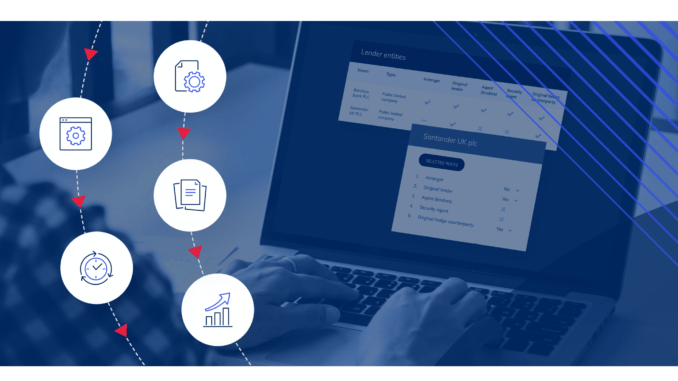
By Elizabeth Basten, CMO, Clarilis
Whatever your thoughts on the speed of tech adoption in law, some firms are setting the pace for others to follow. Many factors drive that pace. In corporate departments a key driver is market demand. Client expectations of the output of ‘digital lawyering’ in this area are higher than most and play a significant part in enabling the pioneers of tech adoption to win more deals, enable more fee earner focus on strategic, high-value work and (hurrah!) deliver better job satisfaction for lawyers at all levels.
The deal spree that started in the summer of 2020 continues to provide significant M&A transaction volumes, with opportunistic and distressed consolidation. In a fiercely competitive legal market, it is the dealmakers who can move fastest that claim a competitive advantage.
Clarilis, known for complex document automation, asked law firms they work with to share their experiences of tech adoption in corporate departments within law firms and to be open about the barriers they face and how they are overcome. These conversations have been shared as part of the Clarilis knowledge leadership series of interviews with Corporate Partners, IT Directors and Innovation Managers. The mindset of the pace setters in this sector is clear and unified – put simply, get on with it, or fall behind.
Waving, Not Drowning
Interviews with Addleshaw Goddard, TLT, Burness Paull and RPC, spotlight these firms as advocates of accelerating the pace of M&A transactions through complex matter or ‘deep automation’.
Depth, in this context appears to be derived from automating all of the documentation involved in a corporate transaction (including all ancillaries) and from a very specific approach to matter-centric design, building, testing and maintaining automation projects.
These firms are swimming confidently in deep automation waters and put themselves forward as pioneers, thanks to satisfying a step-change in client and lawyer expectations in relation to corporate deals. There are clear differentiation opportunities for firms who get it right.
Critics Are Loud, But Success Is Louder
There are investment costs to being pioneers, and there’s no shame in not getting it right first time. But when those investments pay off, they can provide a great leveller – in particular for mid-tier firms to compete with larger firms with deeper pockets and to win more of the higher value deals.
Following a rollercoaster year for deal-making, being able to show clients a very effective tech-driven deal process, gives firms like TLT, one of the participants, a compelling proposition when pitching for work.
Andrew Webber, Corporate Law Partner, TLT, discusses how his firm moves forward quicker and uses its competitive advantage to move other parties in the transaction forward as well. Of course, this not only delivers shorter timescales, but also gives clients a greater sense of certainty.
Addleshaw Goddard’s Chris Taylor also shares his experiences of ‘deep automation’ with Clarilis and how it has proved a business game changer for their SPA suite and private equity documents in addressing this issue.
Mindset Over Matter
Each interview explores the concept that technology will only deliver on its promises if it’s implemented in a supportive culture. How good is your firm at applying innovation to nurture loyal, existing talent by enhancing lawyer satisfaction? How do you attract new talent to come and work for your firm and how do you pick the best candidates from the new generation of tech-discerning lawyers?
It seems that taking away the parts of the job that lawyers don’t really want to do (document population and drafting churn, for example) and liberating lawyers to focus on interesting, strategic work, is a good start.
For A ‘Pace Setter’, It’s All In The Mind
Firms that were once tech-wary now look to ‘pace setters’ for inspiration on how they can best invest in technology. Automation is one of the areas enables firms to keep up with accelerated market demand for complex legal documents in the corporate sphere. Tech-tardiness is increasingly a significant risk to profitability. But the additional risk of a leadership mindset that does not recognise the difference between ‘must-have’ as opposed to ‘nice-to-have’ in a changing market can be a real challenge for firms under pressure to achieve higher margins.
Can You Relate?
It’s not all about impressing your clients with your digitally-enhanced processes. After all, to be successful, tech must be readily adopted by users. And this means you need to secure the support of internal advocates within your legal teams. Many firms strongly suggest that inviting lawyers to contribute what they need and expect from systems during the implementation process, works particularly well. Sam Moore, Innovation Manager, shares the experience of Burness Paull on how they meet the challenge of convincing lawyers that technology is genuinely going to help them and add value to the way they work.
If the benefits of technology are articulated in ways that lawyers can relate to and the process to follow to get there is clear and supportive, aren’t lawyers generally receptive?
Look To Your Peers To See Where The Bar Is Set.
The ability to carry out a detailed review of precedents from an automation perspective before designing, building and testing the automation, is a good reason to work with a tech partner who speaks the language of both tech and law and has significant experience in automation. This is presumably why Clarilis employ a large number of experienced professional support lawyers and automation experts to work with their clients on their ‘deep automation’ journey, all underpinned by the unique Clarilis platform.
This is an approach designed to drive maximum ROI from any automation project and the results are compelling. Firms are prepared to share their experiences as pioneers in the automation landscape and they are setting the bar for others to follow. Their clients (and yours) are listening carefully.
To hear what these firms had to say please click here.

[ Artificial Lawyer is proud to bring you this sponsored thought leadership article by Clarilis. ]